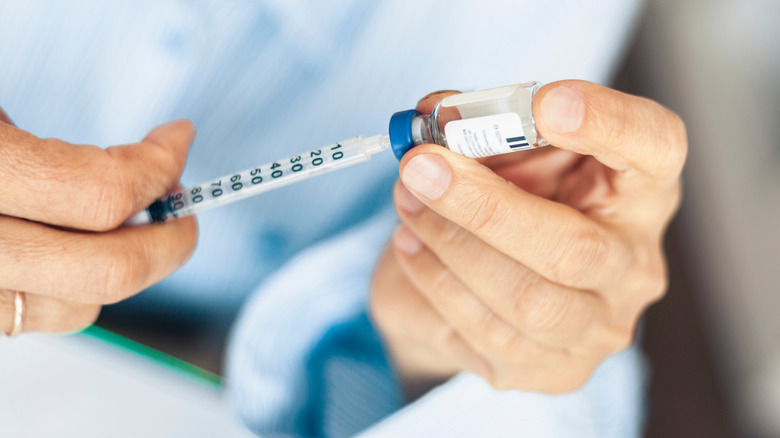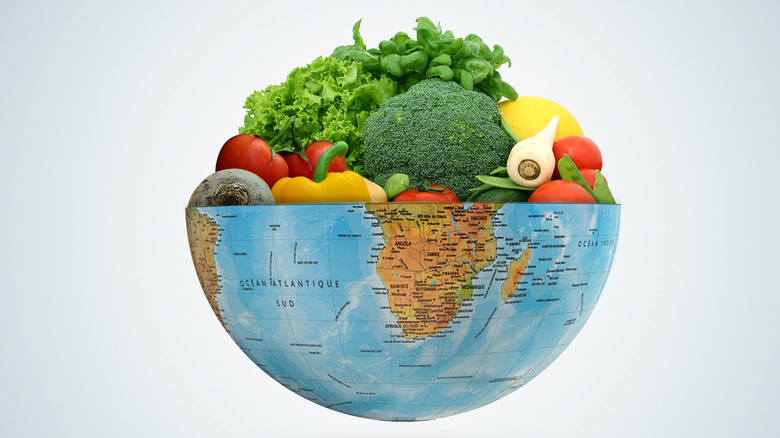The Connection Between Sugar And Diabetes Explained
How does sugar affect the body? Any parent whose given a freeze pop to their kids after dinner knows very well. For both children and adults, the amount of sugar being added to our diets is a growing concern. How is this affecting our overall risk for diabetes? Let's find out.
According to the Centers for Disease Control and Prevention (CDC), there are three medically known types of diabetes: Type 1, Type 2, and Gestational (occurring only in pregnant mothers). Diabetes is a condition in which the body is unable to translate sugars into energy. The issue is the body's lack of insulin production (via Healthline). Insulin is the key hormone that moves sugar from the blood to the cells. Without it, it results in unmistakeable symptoms.
In the case of Type 1 diabetes, the body's immune system attacks insulin-producing pancreas cells, thus preventing the body from producing insulin to regulate the blood sugar (via Medical News Today). In turn, diabetics inject insulin into their blood to prevent prolonged weakness. Type 1 diabetes is inherited and most prevalent in young people.
As for Type 2 diabetes, experts from the Mayo Clinic state the cause as the pancreas not producing enough insulin, therefore "cells respond poorly to insulin and take in less sugar." When cells refuse to utilize insulin to regulate blood sugar levels, this is called insulin resistance (via Medical News Today). As a result, sugar lingers in the blood, causing hyperglycemia as well as a host of other issues if left untreated.
Processed sugar consumption increases Type 2 diabetes risk
Published in the Journal of Diabetes Investigation, a study was conducted with both men and women in Europe, Japan, and the United States that confirmed frequent consumption of sugary drinks escalates the risk for developing Type 2 diabetes. Obesity is also interconnected with a heightened risk of diabetes. Eating more calories than the body uses for energy can cause weight gain, and excess weight can cause the chances of developing Type 2 diabetes to surge.
If you love fruit juice or sweet drinks during the summer, this may interest you. Healthline reports that the natural sugars found in fruits and veggies containing fiber and antioxidants, are absorbed by the body differently and do not affect us adversely. Although sweeteners like agave sugar and honey are labeled "natural," there are healthier options.
The risk for diabetes is heightened by immoderation of processed sugars. To prevent the development of Type 2 diabetes, and to manage all types, Medical News Today suggests consuming a whole food diet along with adequate exercise, and the omission of most added sugars. Instead, enjoy those natural sugars and if you notice ongoing symptoms such as light-headedness, fatigue, or tingling in the hands and feet, be sure to see a medical professional for further diagnosis and treatment.


